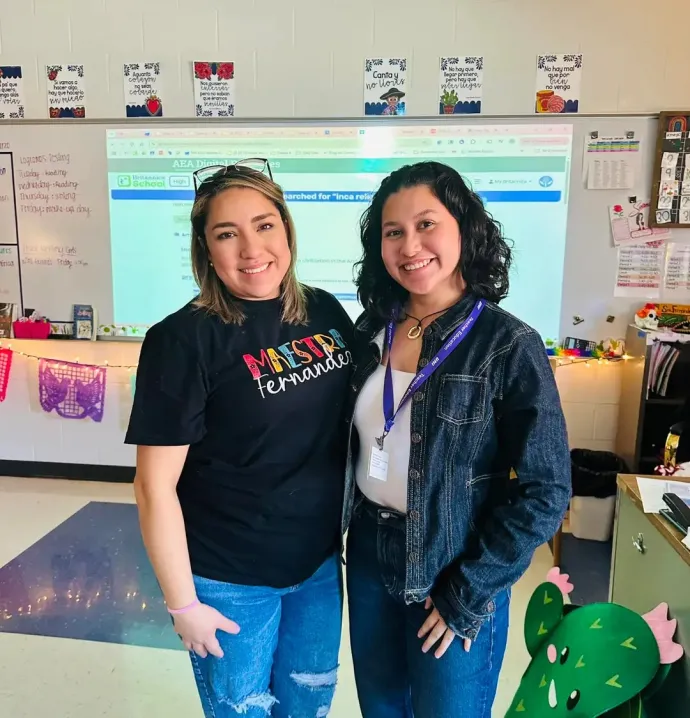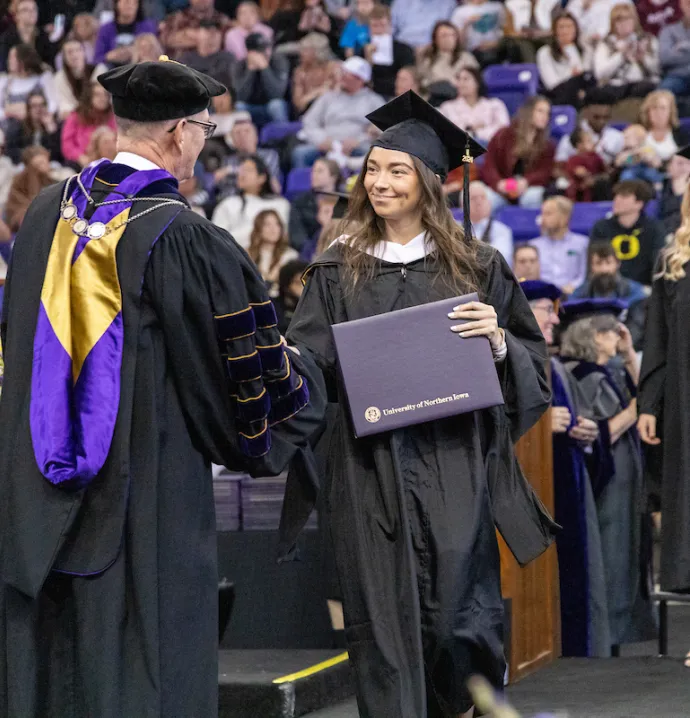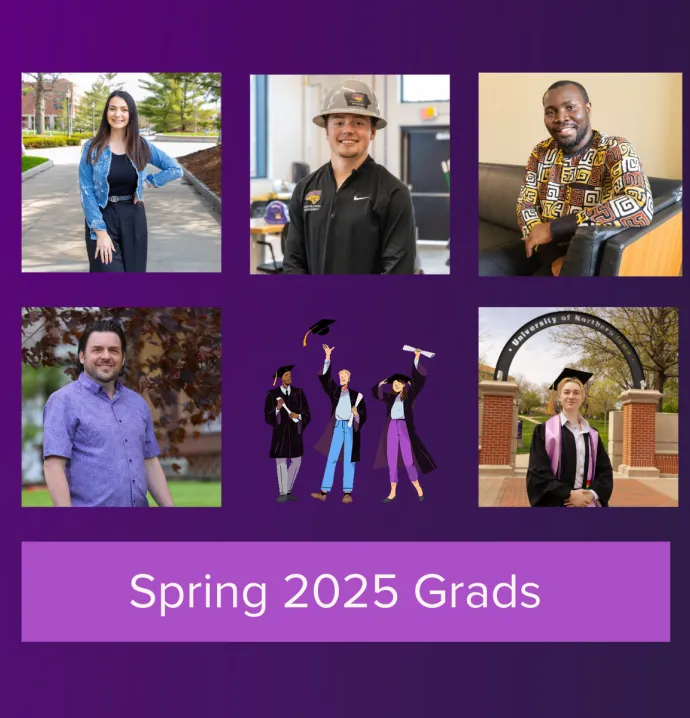Physics, big data and the quest for a cure
Physics, big data and the quest for a cure
What if you could locate a cancer cell, and use the cell’s natural repair process to destroy it? You’d be one step closer to a cure for cancer.
And that’s exactly what students in the UNI Department of Physics are working on.
This summer, a group of three undergraduate students in the department have partnered with the University of Iowa Department of Biochemistry in a unique, collaborative research effort to study cells, and their natural self-repairing mechanisms.
Their research, though still in progress, could have vast implications in the medical field and in cancer research.
Ali Tabei, associate professor of physics at UNI, is overseeing the students in their research, and has been involved in this collaborative project for more than three years, with the assistance of Joseph Tibbs – a physics and biochemistry double major who graduated this spring.
“The basis of the project is to better understand the underlying mechanisms involved in DNA repair,” Tabei said. “Due to different things, DNA can be disrupted or errors can happen. Biological systems have a natural mechanism to repair DNA, but if this process doesn't work properly, things can happen, and one of those things is cancer. Understanding this process can also help us understand how to prevent cancer, or, for those who already have cancer, figure out how to reverse engineer the process and disrupt the repair mechanism of a cancer cell.”
Through the partnership, researchers at the University of Iowa Department of Biochemistry (in Maria Spies’ lab) are using single-molecule microscopy to study real-time biochemical interactions involved in DNA repair – in specific, how proteins bind and unbind from DNA.
After the U of I researchers collect the raw information, they then pass it on to Troy Buzynski, a physics data science major at UNI, who is working on data analysis. Thousands upon thousands of pieces of data will be sent to Buzynski, who will analyze and categorize the data, to find patterns in interactions.
Buzynksi will then send his data to Aaron Kirchman, a physics and math double major at UNI. Kirchman is in charge of developing a computer modeling simulation, which will process the data from Buzynski and use it to model the different interactions and to test different hypotheses.
Finally, from there, UNI physics major Sophie Roberts – with the help of Tim Kidd in the UNI physics department and Justin Peters in the UNI chemistry and biochemistry department – will use AFM (Atomic Force Microscopy) imaging to analyze the photos of the DNA showing how the structure of the DNA changes – an important aspect of understanding the repair mechanisms.
Kirchman says that this type of collaborative research has been an incredibly unique learning experience for him.
“As a physics major, I am often focused on memorizing equations and solving problems using pen and paper but this experience is entirely different,” he said. “Rather than doing individual calculations to find a ‘correct’ answer, I am using computational skills and computer codes to model a system that really isn't talked about in undergraduate physics classes. As someone who is hoping to do research as a career, it has been really exciting to see the process and get out of the typical ‘right or wrong’ theory that's used in most classes. It's really allowed me to explore my strengths and see physics in a setting other than the classroom, and it’s intriguing to see everyone's progress in the group and know that eventually it will all get combined into some really helpful results.”
Buzynski, Kirchman and Roberts’ work is just one of the many research projects going on in the UNI Department of Physics, and across the UNI campus this summer.
DTabei says that UNI is unique in that it provides and encourages research involvement at the undergraduate level, which is an important part of the educational process for anyone involved in science – particularly in the rapidly growing field of data science.
“This type of research gives students the chance to build skills in a realistic setting,” he said. “It’s extremely beneficial to have research experience if you want to go to grad school, or if you want to apply for jobs in the industry. A lot of jobs that physics majors are getting these days are actually computational or data science jobs, so it’s a big boost to have this type of experience on their resume. It’s a unique skill that you don’t gain by just taking a programming lesson. In addition, I think it’s very unique and exciting to be involved in such a collaborative, team-based project, where you’re learning from and working with others in a cross-disciplinary manner.”




